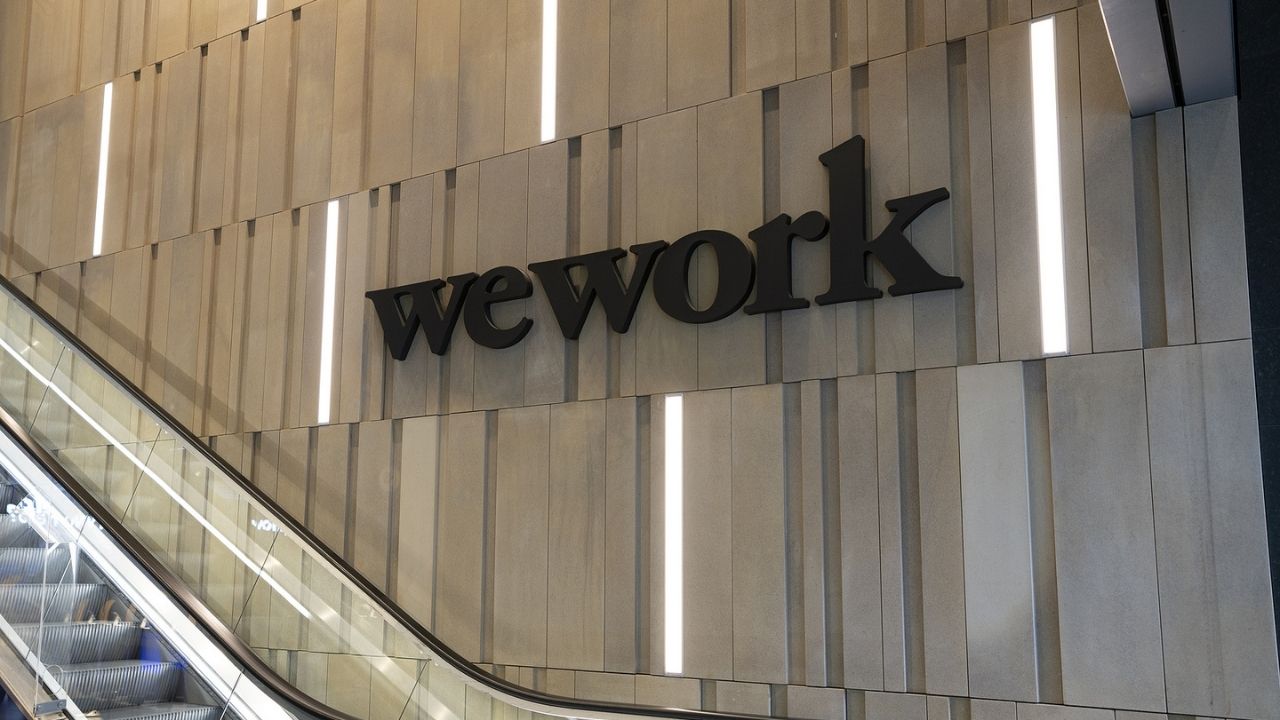- WeWork (finally) went public on October 21 through a $9 billion merger with BOWX Acquisition Corp.
- WeWork is currently trading at a significantly higher price than its better performing rivals.
- Jonathan Price argues that this may due to the TESLA effect.
After a disastrous failed attempt in 2019, WeWork (WE.NYSE) finally got itself listed on the NYSE on October 21, thanks to a de-SPAC deal with BOW-X Inc.
At $9 billion, the market cap was a pale shadow of its previous super hyped $47 billion valuation touted to investors in 2019, let alone the stratospheric $100 billion some investment bankers had bandied around while trying to win the IPO mandate.
The million billion dollar question is: How did WeWork manage to get the deal done this time?
The answer?
Some serious ‘house-cleaning over the past 2 years.
After Adam Neumann stepped down as CEO, WeWork went through a number a number of management changes and some intense cost-cutting measures.
The new CEO, Sandeep Mathrani, is a credible executive from the real estate industry, which no doubt comforts the market, even if it makes those of us actually from the coworking industry grimace (real estate companies have generally been hopeless at coworking) and WeWork has had a dollop of cash from Cushman & Wakefield, another big name in real estate with little clue about coworking (if you ask me, that is).
While WeWork’s new leadership has been successful at cutting costs, it hasn’t been successful at turning a profit. In 2020, WeWork reported a loss of $3.2 billion; if you add this year into the mix, WeWork has lost $6 billion over the course of 18 months.
Granted, COVID-19 and the respective lockdowns didn’t do WeWork (or other operators) any favours. But, by way of contrast, the losses at larger rival IWG (IWG.L) have been markedly lower, with a post-tax loss in H1 2020 of $333 million being reduced to $242 million in H1 2021.
The market reaction to the long-awaited shares has been less than ecstatic with a post flotation bounce up to $13.18 per share followed by a steady decline to $9.18 where it closed on November 12th. Over the same period IWG has traded between 302p per share and 310p, closing on Friday at 302.8p.
The real contrast, however, is between the market performance of those two giants and that of the much smaller, but profitable Sirius Real Estate (SRE.L), which despite its name, was founded by, and is managed by coworking veterans.
Sirius announced a £245 million ($343 million) takeover of BizSpace on Tuesday 9th November and the market has responded positively, pushing the shares up to 141.4p from 131.6p, where they closed on the day before the deal announcement, a 7.5% increase.
In terms of market cap, WeWork is now valued at $7.28 billion with IWG at $5.04 billion, and Sirius at $2.1 billion.
Sirius operates in a different market segment to WeWork and IWG, with a mix of semi-industrial space alongside its offices, and its main competitor in the UK market, competing with its new BizSpace acquisition, is Workspace (WKP.L) which has a market cap of $2.1 billion and is also profitable.
Although the price has dropped since the flotation, WeWork still trades at a significantly higher price than its better performing rivals and it is interesting to speculate why it does so.
The explanation that the company itself advanced prior to the 2019 debacle, that it is a technology company not a real estate company, has been thoroughly debunked by a number of books detailing WeWork’s rise and fall.
A better explanation may be the rarity factor.
In the US market there are no other listed operators and investors interested in coworking are directed to two REITs, Vornado Realty Trust (NYSE: VNO) and Boston Properties Inc. (NYSE: BXP).
These may or may not be good investments, I have no view on the matter, but they are clearly not comparable to WeWork or IWG as the latter two do not own the real estate. For an investor wanting a leveraged bet on the ‘future of work’ WeWork is the only game on the NYSE.
The other possible explanation is the TESLA effect.
TESLA is worth more than the other car manufacturers combined despite its much lower production numbers. It is also worth so much that it is difficult to see how the price could be justified on the basis of any likely future profitability. Thus its shares break the golden rule of investment – that a share is worth the net present value of all future dividend payments.
While Adam Neumann was CEO, WeWork investors were under the spell of a charismatic founder, in the same way that TESLA investors are under the spell of Elon Musk. In such circumstances the norms of valuation seem less important, at least as long as the spell lasts.
Although Adam is no longer CEO of WeWork, his presence lingers on like the smile of the Cheshire Cat and perhaps that is what keeps the share elevated beyond the normal pull of gravity.



 Dr. Gleb Tsipursky – The Office Whisperer
Dr. Gleb Tsipursky – The Office Whisperer Nirit Cohen – WorkFutures
Nirit Cohen – WorkFutures Angela Howard – Culture Expert
Angela Howard – Culture Expert Drew Jones – Design & Innovation
Drew Jones – Design & Innovation Jonathan Price – CRE & Flex Expert
Jonathan Price – CRE & Flex Expert













